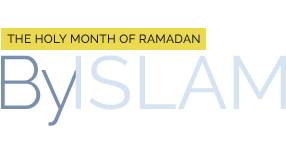What Is the Specific Fast?
The specific fast is a more meaningful fast. In this level, not only does the fasting one refrain from those things that he must avoid during the general fast, but he also ensures that every member of his body fasts. In fact, some traditions consider this fast as the fast anticipated from the believers. Observe the following narratives:
- The Holy Prophet (s) is reported to have said:
رُبَّ صَائِمٍ حَظُّهُ مِنْ صِيَامِهِ الْجُوْعُ وَالْعَطَشُ، وَرُبَّ قَائِمٍ حَظُّهُ مِنْ قِيَامِهِ السَّهَرُ.
“How often is the share of one who fasts, [nothing save] hunger and thirst, and how often is the share of one who stands in prayer [nothing but mere] vigil.”
- Imām ‘Alī (‘a) is reported to have said:
أَلصِّيَامُ إِجْـتِنَابُ الْمَحَارِمِِ كَمَا يَمْـتَنِعُ الرَّجُلُ مِنَ الطَّعَامِ وَالشَّرَابِ.
“Fasting is to abstain from forbidden acts the way a man refrains from food and drink.”
- Hadrat Fātimah Zahrā’ (‘a) is reported to have said:
مَا يَصْنَعُ الصَّائِمُ بِصِيَامِهِ إِذَا لَمْ يَصُنْ لِسَانَهُ وَسَمْعَهُ وَبَصَرَهُ وَجَوَارِحَهُ؟
“What should the fasting one do with his fast if he did not protect his tongue, hearing, sight and members of his body?”
- Muhammad bin ‘Ajlān reports from Imām al-Sādiq (‘a):
لَيْسَ الصِّـيَامُ مِنَ الطَّعَامِ وَالشَّرَابِ أَنْ لاََ يَأْكُلَ الإِنْسَانُ وَلاَ يَشْرَبَ فَقَطْ، وَلٌكِن إِذَا صُمْتَ فَلْيَصُمْ سَمْعُكَ وَبَصَرُكَ وَلِسَانُكَ وَبَطْنُكَ وَفَرْجُكَ، وَاحْفَظْ يَدَكَ وَفَرْجَكَ وَأَكْثِرِ السُّكُوْتَ إِلاَّ مِنْ خَيْرٍ، وَارْفِقْ بِخَادِمِك.
“Fasting from food and drink does not merely mean that the human being should not eat or drink; rather when you fast, then your ears, eyes, tongue, stomach, and private parts must [also] fast; and safeguard your hand and private parts and observe silence most of the time save from what is good to say; and be kind to your servant.”
- Imām Zayn al-’Abidīn (‘a) in his prayer on the arrival of the holy month of Ramadān humbly prays:
أَللٌّهُمَّ صَلِّ عَلَى مُحَمَّدٍ وَ آلِهِ، وَأَلْهِمْنَا مَعْرِفَةَ فَضْلِهِ وَإِجْلاَلَ حُرْمَتِهِ، وَالتَّحَفُّظَ مِمَّا حَظَرْتَ فِيهِ، وَأَعِنَّا عَلـى صِيَامِهِ بِكَفِّ الْجَوَارِحِ عَنْ مَعَاصِيكَ، وَاسْتِعْمَالِهَا فِيهِ بِمَا يُرْضِيكَ، حَتّى لاَ نُصْغِيَ بِأَسْمَاعِنَا إِلـى لَغْوٍ، وَلاَ نُسْرِعَ بِأَبْصَارِنَا إِلـى لَهْوٍ، وَحَتَّى لاَ نَبْسُطَ أَيْدِيَنَا إِلـى مَحْظُورٍ، وَلاَ نَخْطُوَ بِأَقْدَامِنَا إِلـى مَحْجُورٍ، وَحَتَّى لاَ تَعِيَ بُطُونُـنَا إِلاَّ مَا أَحْلَلْتَ، وَلاَ تَنْطِقَ أَلْسِنَتُنَا إِلاَّ بِمَا مَثَّلْتَ، وَلاَ نَتَكَلَّفَ إِلاَّ مَا يُدْنِي مِنْ ثَوَابِكَ، وَلاَ نَتَعَاطَى إِلاَّ الَّذِي يَقِي مِنْ عِقَابِكَ، ثُمَّ خَلِّصْ ذٌلِكَ كُلَّهُ مِنْ رِئَاءِ الْمُرَائِينَ، وَسُمْعَةِ الْمُسْمِعِينَ، لاَ نُشْرِكُ فِيهِ أَحَداً دُونَكَ، وَلاَ نَبْـتَغِي فِيهِ مُرَاداً سِوَاكَ.
“O Allāh, bless Muhammad and his Household; inspire us with knowledge of its excellence, veneration of its inviolability, and caution against what You have forbidden within it, and help us to fast in it by our restraining our limbs from acts of disobedience toward You and our employing them in that which pleases You, so that we lend not our ears to idle talk and hurry not with our eyes to diversion, we stretch not our hands toward the forbidden and strive not with our feet toward the prohibited, our bellies hold only what You have made lawful and our tongues speak only what You have exemplified, we undertake nothing but what brings close to Your reward and pursue nothing but what protects from Your punishment! Then rid all of that from the false show of the false ostentatious and the fame seeking of the fame seekers, lest we associate therein anything with You or seek therein any object of desire but You!”
Source:
A Short Treatise on The Divine Invitation
written by Muhammad M. Khalfan




